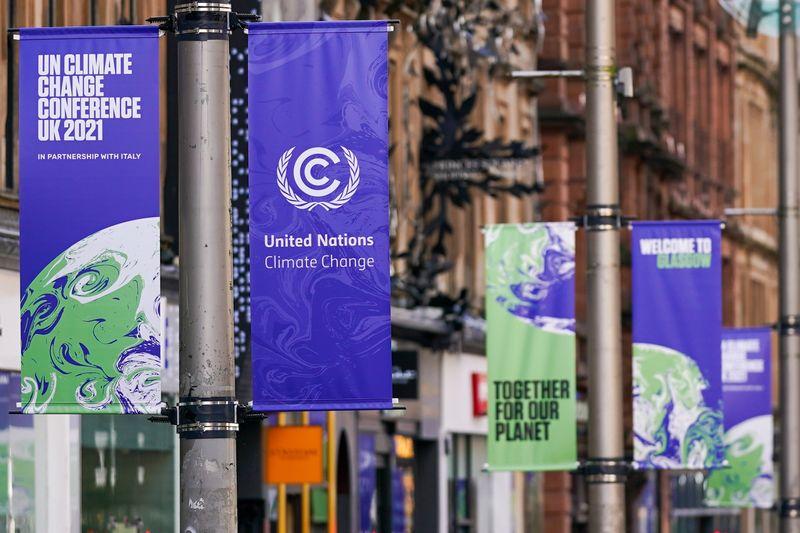COP26: Roundup of Major Pledges

Image Courtesy: Ian Forsyth/Bloomberg
The COP (Conference of Parties) 26 is ongoing in Glasgow, considered a crucial meet as there is not much time left for humanity to mitigate the man-made climate crisis. The unabated high emission levels, the alarming rise in sea level, extreme weather conditions, droughts, and floods denote the deteriorating global climate due to anthropogenic factors. These issues demand immediate, serious and effective policies. The COP26 is expected to help nations develop frameworks and pledges to reduce the onslaught on the climate.
The world has some more days to judge the success or failure of such a high-level meet, which has implications for the planet's future and humanity. In the initial days, several pledges have been made at the summit by various countries.
Among one of the essential pledges is India's pledge for net-zero emissions. Importantly, it is the first time that India has set such a target. The country declared that it would achieve the net-zero commitment by 2070. The timeline proposed by India is 20 years behind the commitment made by the United States and Europe, which is achieving net-zero by 2050 and 10 years behind China. However, India has also set other targets, like generating 50% of the country's power need from renewables by 2030.
As per the latest data, 70% of the entire power requirement of India is generated from coal. Interestingly, the country has one of the cheapest solar energy in the world. Still, it does not have the technology to integrate this energy into power grids to be used on a large scale. Hydrogen technology and storage will be critical for India to deviate from its coal-intensive industrial sector, which is unlikely to happen before 2040.
Among other pledges is the halt of deforestation by the year 2030. More than 100 countries representing 85% of the world's forests have promised in the summit to work together to reverse forest loss along with land degradation. However, pledges of this kind will have to be judged in the future regarding their success. There had been similar promises made in previous climate summits, but they didn't translate to reality. For example, similar pledges were made in the UN summit in 2014, held in New York. One of the signatories there was Brazil, where wide-scale destruction of the Amazon forest has been going on in the last few years during the Bolsonaro regime. Bolsonaro's ruthless policies, which have led to the massive destruction of the world's largest rainforest, has been criticised in the recent past. Still, things remain unchanged in his regime.
Joe Biden, the US president, outrightly vocal on the Chinese and Russian head of states for escaping the summit, has nothing much in his hand to deliver in the summit. The primary deal that Biden brings to the summit is a few renewed regulatory measures aimed towards limiting global methane emissions, with a target of a 30% reduction from 2020 till the end of this decade. In a written statement addressing the summit, the Chinese president, Xi Jinping, has called for wealthier nations to invest more in helping lower-income countries.
The summit is still on, and it remains to be seen how many achievable targets will be set this time.
Get the latest reports & analysis with people's perspective on Protests, movements & deep analytical videos, discussions of the current affairs in your Telegram app. Subscribe to NewsClick's Telegram channel & get Real-Time updates on stories, as they get published on our website.
























